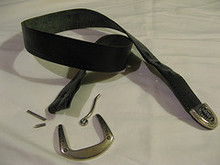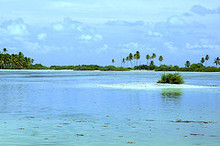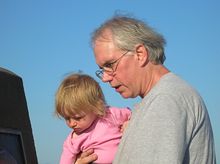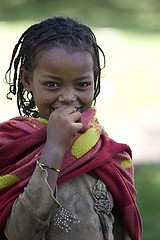Salon's Alexander Zaitchik has a pretty good 3-part series on Glenn Beck's life if you want a little background on the boy from Mt. Vernon who make it big as a DJ and then switched over to talk radio. It's quite interesting. And, it's hard to see him as anything but a serial opportunist who is likely wrecking havoc with our democracy mostly because it brings good ratings.
September 2009 Archives
 Spanking lowers a child's IQ, according to recent studies. An article in the LA Times discusses work by long-time writer on corporal punishment, Murray Straus of the University of New Hampshire. Straus and a team of researchers tested children at age 2-4 and then again four years later at 5-9. "The more spanking, the slower the development of the child's mental ability," Straus said. Additional research also shows a link between early spanking and aggressive behavior later on, at least in white children. (Spanking in African-American families tends to make for more passivity, as it is likely intended to do, as a kind of preventative medicine so young black men don't draw attention to themselves later on.)
Spanking lowers a child's IQ, according to recent studies. An article in the LA Times discusses work by long-time writer on corporal punishment, Murray Straus of the University of New Hampshire. Straus and a team of researchers tested children at age 2-4 and then again four years later at 5-9. "The more spanking, the slower the development of the child's mental ability," Straus said. Additional research also shows a link between early spanking and aggressive behavior later on, at least in white children. (Spanking in African-American families tends to make for more passivity, as it is likely intended to do, as a kind of preventative medicine so young black men don't draw attention to themselves later on.) 
This article might not have caught my attention except for two things. A long-time friend, Sally Giovine-Kerr, now deceased, used to talk a lot about how destructive corporal punishment was and Sally was a damned good observer of people. Then, earlier this week, I heard Max Blumenthal, author of the new book "Republican Gomorrah" talk about the history of "stupid" that has come to dominate the Republican Party. I will probably talk more about his book once I read it. I was struck by the connection that Blumenthal made in his talk between the belt-wielding, child-rearing practices recommended by child psychologist James Dobson, whom Blumenthal sees as the very center of the Right-wing Christian movement, and the growing teabag/anti-Obama/anti-government anger. Blumenthal talked about Eric Fromm's take on the movement. He said it was a combination of sado-masochism toward others designated as "less-than" and prostration toward the big macho guys. He also said it generally had to be beaten into people, literally.
Others, including George Lakoff, have talked about the linkage between child-rearing practices and one's politics as an adult. Blumenthal pulls no punches and he backs up what he says with a prodigious amount of research into the Right-wing Christian movement. Had I read this article on spanking prior to listening to him the other night, I would have asked him, "Does this early spanking/beating account for some large portion of the aggressive stupidity that we are constantly baffled at that comes from this group of people?"
I'd also like to see the statistics about spanking children broken out by state or county and correlated to voting patterns.
 Yesterday, along with President Obama and Colonel Quaddafi, the President of the Maldives, Mohammed Nasheed, addressed the UN General Assembly. Nasheed spoke only for a few minutes but what he said may have been the most important words spoken all day.
Yesterday, along with President Obama and Colonel Quaddafi, the President of the Maldives, Mohammed Nasheed, addressed the UN General Assembly. Nasheed spoke only for a few minutes but what he said may have been the most important words spoken all day.The Maldives are one of the nations most impacted by global warming. They will disappear under the Indian Ocean if the sea level rises more than a meter. The nation is actually raising money to move the entire population somewhere else. They are the proverbial canary. So, President Nasheed called on the members of the UN to make the upcoming climate summit in Copenhagen a success. He called for a return of CO2 levels in the atmosphere to 350 parts per million, the level that our best scientists say is what is needed to stabilize the world's climate.
Here are his first few words:
Here in the Maldives, it's easy to see why the math of the current climate change debate just doesn't add up -- and why negotiators are going to have to work a lot harder before the Copenhagen climate conference if they're interested in the survival of much of the planet. The Maldives stretches 800 kilometers across the Indian Ocean, an archipelago of 1,200 tropical islands just a few meters above sea level. It is incomparably beautiful but also highly vulnerable. Sea level rise of even half a meter would make much of it uninhabitable; meanwhile, ocean temperature spikes could destroy the coral reefs that protect these islands from the waves.And his closing challenge to the world leaders:
This is why no one in the Maldives is applauding the recent pledge of the G-8 nations to try and hold temperature increases to 2 degrees and the atmospheric concentration of CO2 to 450 parts per million. A few years ago, those might have been laudable goals, but new science makes clear they're out of date.
The climate is near a tipping point -- when the Arctic suddenly melts and the glaciers disappear, that's a very bad sign. We need our political system to cross a tipping point, too, to move from feel-good statements to actual solutions, cutting emissions quickly enough to meet the demands of science. But politicians are reluctant to act unless the people act first. The events in New York and on October 24th provide ordinary people with the opportunity to make their voices heard and, in doing so, remind politicians who is ultimately in charge.And here is the transcript and a YouTube of what he said.
 I've been away for most of the last couple weeks, quite unexpectedly. My brother, Mark, died suddenly a couple weeks ago and I went to northern California to be with my mother. He was younger than I and most likely died of a heart attack or perhaps something related to his diabetes. I don't think we will ever know. I haven't begun to do my grieving. There are now a slew of questions about what my mother will do and thinking about that with my sisters has shoved my grieving about my brother to the side.
I've been away for most of the last couple weeks, quite unexpectedly. My brother, Mark, died suddenly a couple weeks ago and I went to northern California to be with my mother. He was younger than I and most likely died of a heart attack or perhaps something related to his diabetes. I don't think we will ever know. I haven't begun to do my grieving. There are now a slew of questions about what my mother will do and thinking about that with my sisters has shoved my grieving about my brother to the side. My brother was a very good person but he had never quite gotten his life going. I think much of my grieving is for a life largely unfulfilled. He had many skills and talents but wasn't able to focus them into a career or even a consistent job. I miss him. I miss our talks, long conversations about politics on the phone. He worked quite hard on Jerry McNerny's campaign in the neighboring Congressional District in 2006. He was particularly interested in registering people to vote; stories about Republicans dumping voter registrations make him quite angry.
 He was also, like everyone else in our family, completely taken with our sister's daughter, Nadia, shown here about three years ago. He doted on her and when I went down to help my mother clean out his room, we found several books and games that had to be very early Christmas or birthday gifts for her.
He was also, like everyone else in our family, completely taken with our sister's daughter, Nadia, shown here about three years ago. He doted on her and when I went down to help my mother clean out his room, we found several books and games that had to be very early Christmas or birthday gifts for her. I've found from other deaths that there is nothing like it to make everything in my life come into clearer focus. It's been no different this time. Life has just seemed more poignant; my emotions are closer to the surface. I'm sleeping more. I've given up wearing eye makeup for the time-being; every time I go out something makes me cry and I come home with smudges under my eyes.
But of course the world has not stopped even if I have been too busy and too distracted to be writing about that. I've got a back-log of things I want to write about and should get to now. There are a couple of posts remaining from my trip to Netroots Nation in Pittsburgh, now a few weeks past, a belated Labor post, and more on Healthcare Reform. For the next few days I'm resting in the spaciousness of my friend Barbara's house in the Okanogan. The timing couldn't be better. But I expect that I'm make it down to the local coffee shop once a day to get a post out.
 Kofi Annan has called the education of girls the "single highest returning social investment in the world today". Goldman Sachs, which has put $100 million toward assisting women from developing countries to gain access to business and entrepreneurial education, seems to agree. An article in Huffington Post by Julia Moulden entitled, "When You Educate a Girl, Everything Changes" speaks to work that many individuals and organizations are supporting.
Kofi Annan has called the education of girls the "single highest returning social investment in the world today". Goldman Sachs, which has put $100 million toward assisting women from developing countries to gain access to business and entrepreneurial education, seems to agree. An article in Huffington Post by Julia Moulden entitled, "When You Educate a Girl, Everything Changes" speaks to work that many individuals and organizations are supporting. Some of us have been hearing for years that educating young women is the best way to improve economic growth, limit family size, reduce child and maternal mortality and reduce the spread of HIV/AIDS. Apparently it's official now. Moulden writes that Camfed, the organization that has been pushing the education of girls in Africa since 1993, has a lot of support now. Among other things, Nicholas Kristof, NYT columnist, has co-written a book, entitled "Half the Sky: Turning Oppression into Opportunity for Women Worldwide", that describes the work that Camfed is doing and the women whose lives have been helped.
